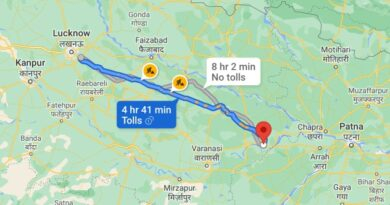Major economical events
Modern world history has witnessed significant economic events that have shaped the global economy. Here are some major economic events and developments from the late 19th century to the present day
Major economical events during modern world history
1. Industrial Revolution (late 18th to early 19th centuries): The Industrial Revolution marked the transition from agrarian economies to industrial economies, with the widespread use of machinery and the growth of factories. This era led to significant increases in production, urbanization, and economic growth.
2. Great Depression (1929-1930s): The Great Depression was the most severe economic downturn in modern history, triggered by the Wall Street Crash of 1929. It resulted in widespread unemployment, bank failures, and a sharp contraction in economic activity, leading to significant changes in economic policy and the New Deal in the United States.
3. World War II (1939-1945): The war had a profound impact on the global economy. Post-war reconstruction, the Marshall Plan, and the establishment of international organizations like the United Nations and the World Bank played key roles in rebuilding economies and fostering international economic cooperation.
4. Bretton Woods Conference (1944): The Bretton Woods Conference led to the creation of a post-war international monetary system. It established fixed exchange rates linked to the U.S. dollar and laid the foundation for the International Monetary Fund (IMF) and the World Bank.
5. Post-War Economic Boom (1950s-1960s): The period following World War II saw a period of economic growth in many Western countries, known as the “Golden Age of Capitalism.” Factors such as technological innovation, increased consumer spending, and the rebuilding of war-torn economies contributed to this prosperity.
6. Oil Crises (1973 and 1979): The oil crises, triggered by the OPEC oil embargo and the Iranian Revolution, led to significant increases in oil prices and had a profound impact on global energy markets and economic stability.
7. Collapse of the Soviet Union (1991): The dissolution of the Soviet Union resulted in the transition of former communist countries to market economies. This process, known as “shock therapy,” had far-reaching economic implications.
8. Asian Financial Crisis (1997-1998): Several Asian economies, including Thailand, South Korea, and Indonesia, faced a financial crisis marked by currency devaluations and banking collapses. The crisis had regional and global economic repercussions.
9. Global Financial Crisis (2007-2008): The financial crisis, triggered by the collapse of Lehman Brothers and the housing market bubble, led to a severe global recession. It prompted significant government interventions and regulatory reforms in the financial sector.
10. China’s Economic Rise (late 20th century to the present): China’s economic transformation, driven by economic reforms and export-led growth, has made it the world’s second-largest economy. It has reshaped global trade dynamics and had a substantial impact on the global economy.
11. Digital Revolution and Technological Advances (late 20th century to the present): The proliferation of digital technology and the internet has transformed industries, created new business models, and disrupted traditional economic structures.
12. Globalization and Trade Agreements (late 20th century to the present): The expansion of global trade, facilitated by agreements like the North American Free Trade Agreement (NAFTA) and the establishment of the World Trade Organization (WTO), has profoundly affected global economic integration.
13. Financial Technology (Fintech) and Cryptocurrency Boom (21st century): The rise of fintech and cryptocurrencies, such as Bitcoin, has the potential to disrupt traditional financial systems and reshape the way people engage with finance and transactions.
These events represent just a few of the major economic developments in modern world history, and each has had a significant and lasting impact on the global economy. The interconnectedness of nations and markets in the modern era underscores the importance of understanding these events in a global context.
Refer more article in IMF blog
Chapter 1. Introduction of Economy
A. Organizing an Economy



